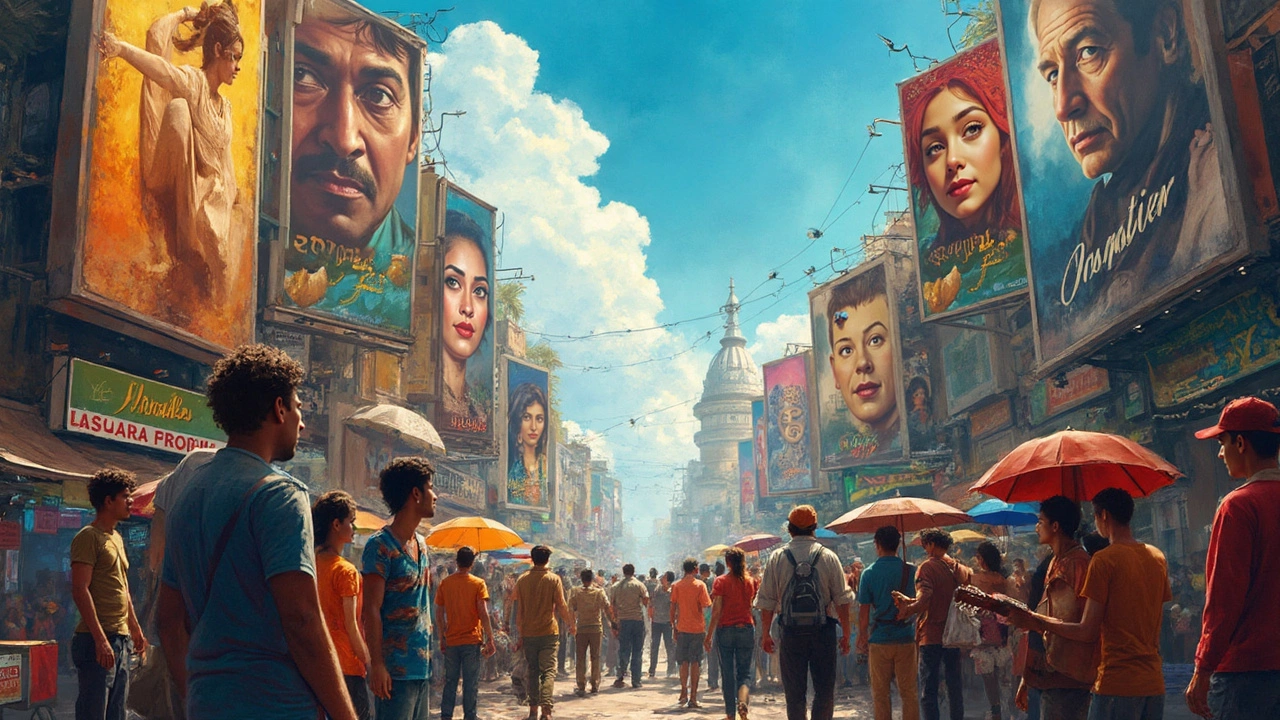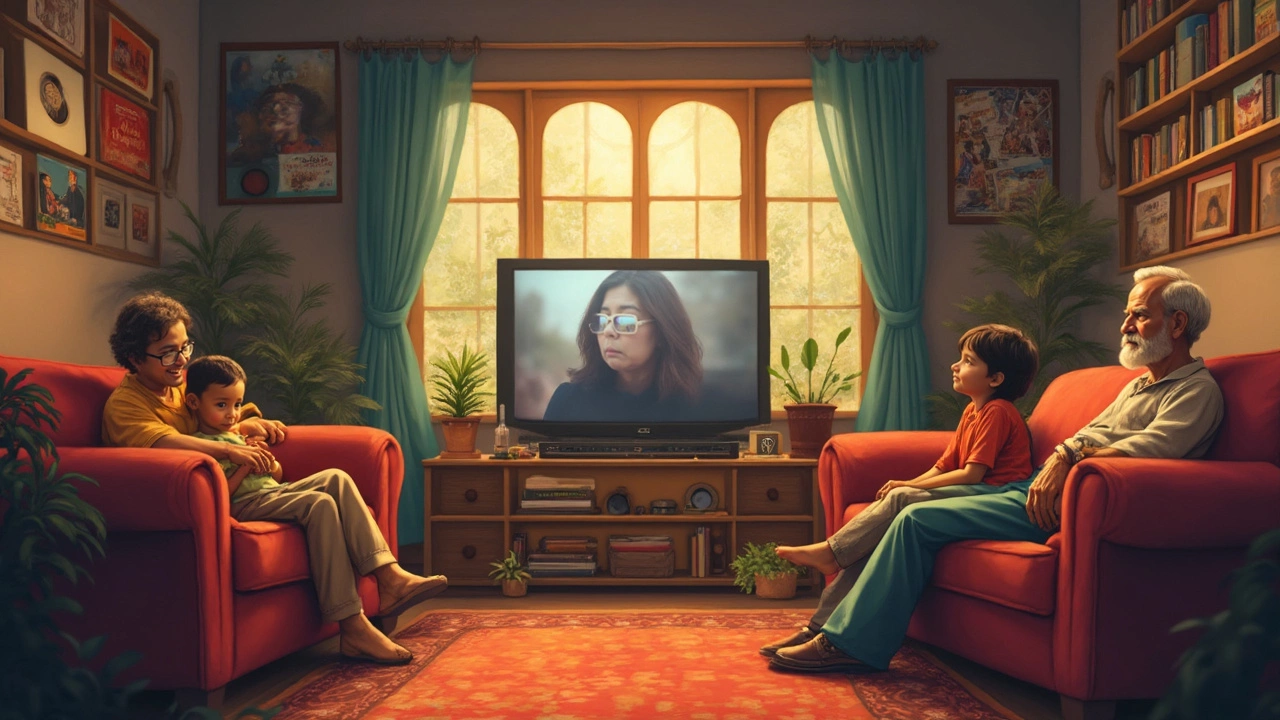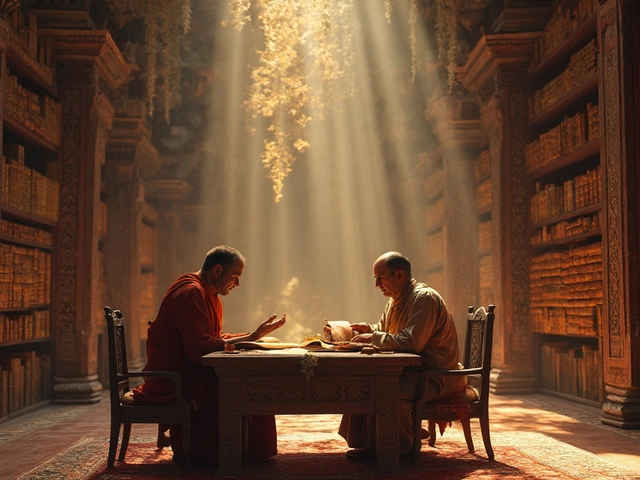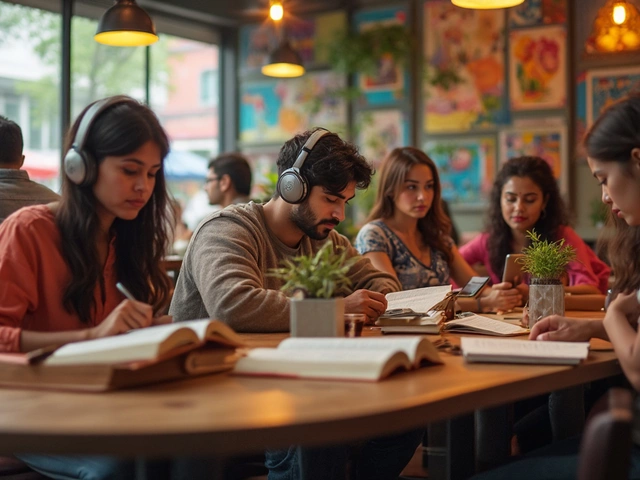
Ever wonder how much our daily lives are influenced by the stories we consume every day? Think about your favorite TV shows, that catchy song on repeat, or the meme that made you laugh this morning. These are what we call popular culture texts, and they sneak their way into our hearts and minds without us even noticing.
TV shows are a great place to start. Whether you're a fan of classic sitcoms like Friends or more recent hits like Stranger Things, these stories aren't just for entertainment. They reflect society's current values, issues, and even struggles. Shows that tackle social challenges often spark conversations and bring awareness to pressing topics.
Music, too, plays a vital role in shaping popular culture narratives. Artists like Beyoncé and BTS not only produce chart-topping hits but also address themes like empowerment and mental health. Their songs often capture the cultural zeitgeist and influence listeners around the world.
- What is Popular Culture Text?
- Examples from Television
- Music's Role in Culture
- Internet and Social Media Narratives
- Movies as Cultural Mirrors
- How Popular Culture Shapes Us
What is Popular Culture Text?
Popular culture text, often simply called popular culture, surrounds us all the time. It's what we read, watch, listen to, and share. But what exactly does it involve? Let's break it down in simple terms.
The term itself refers to the collection of ideas, perspectives, attitudes, memes, images, and other phenomena that are prevalent in mainstream society. It's the stuff everyone talks about, sharing common ground among people from various backgrounds. It could be a blockbuster movie, the latest TikTok challenge, or even a well-loved book series like Harry Potter.
Popular Culture Texts are essential because they provide a mirror to society's ongoing dialogue about itself. They reflect what we care about, fear, or find amusing. These narratives help us understand different viewpoints and foster a sense of community. They include television shows, films, music, online content, and so much more.
Understanding these texts is crucial as they don't just influence our entertainment preferences but also affect our opinions, lifestyles, and values. They can drive social change by bringing critical issues to light. For instance, shows like Black Mirror and The Simpsons comment on societal trends, raising awareness about our consumption of technology and culture.
Why It Matters
Why should we care about popular culture texts? They are more than just time-fillers. They shape how we see the world and each other. They also offer a powerful lens through which we can analyze what's happening around us.
- Influence: Pop culture often influences social norms and expectations.
- Reflection: It mirrors current global issues and dialogues.
- Connection: Through shared interests, it helps create bonds among individuals.
- Change: It can serve as a platform for advocating social change, promoting diversity, and challenging stereotypes.
As technology evolves, so does the nature of these texts. In the digital age, the line between creator and consumer blurs, with interactive platforms like YouTube and Instagram allowing for more personalized and diverse content creation and sharing.
Examples from Television
Television has long been a prime source of popular culture texts, each channeling different slices of life and sparking conversations in lounge rooms around the globe. From comedies to sci-fi thrillers, these shows do more than entertain; they mirror societal shifts and highlight cultural ideals.
The Power of Sitcoms
Take the iconic sitcom Friends. This show isn’t just about a group of pals hanging out in New York City. It's about friendship, love, and the transition to adulthood. The show reached millions and became a cultural phenomenon, influencing fashion, language, and even coffee consumption! Remember the 'Rachel' haircut?
Dramas that Push Boundaries
Let's dive into dramas like Breaking Bad. Here we have a story about a high school teacher turned drug kingpin. This storyline delves into morality and desperation, challenging viewers to question what they'd do in similar circumstances. It's a perfect example of a show that pushes boundaries and makes you think twice about right and wrong.
Reality Television's Influence
And what about reality TV? Shows like Keeping Up with the Kardashians have changed the way we see fame and wealth. Love them or hate them, the Kardashians have arguably set the stage for influencer culture, where reality bleeds into our understanding of celebrity.
The Global Impact
If we zoom out, globally popular shows like Stranger Things illustrate how TV can cross cultural boundaries. With its mix of '80s nostalgia and supernatural intrigue, it resonates with audiences worldwide, showing that certain themes—like friendship and triumph over evil—are universally appealing.
Every one of these shows offers more than just a story; they provide a lens through which we can examine our lives and society. The next time you're binging on Netflix, think about what these characters and plots say about today's world.
Music's Role in Culture
Music isn’t just about rhythm and melody—it's a vital popular culture text that deeply impacts society. It mirrors our mood, drives change, and touches hearts across the globe. Ever notice how a song can make you smile, cry, or even inspire you to take action?
Music's influence often shows up in the form of social commentary. Take musicians like Bob Dylan or Kendrick Lamar, for example. Through their lyrics, they highlight social issues, reflect on political landscapes, and sometimes even challenge the norms. They use their art to start conversations and push boundaries.
The Power of Lyrics
Lyrics can be a powerful tool for storytelling. In the 60s, The Beatles sang about peace and love at a time when the world was anything but peaceful. Fast forward to today, artists like Lizzo and Billie Eilish use their platform to address topics like body positivity and mental health. These songs don't just entertain; they resonate with real experiences and spark meaningful dialogue.
Global Impact
Another major player in music's role is its ability to transcend cultural barriers. Take K-pop, for instance. How did Korean pop music win hearts worldwide? It's mainly because of its catchy music, vibrant aesthetics, and the seamless fusion of traditional and modern themes. This globalization of music showcases how culture can be shared and celebrated universally.
| Genre | Global Influence |
|---|---|
| Pop | Dominant in promoting Western culture globally |
| Hip-Hop | Highlights socio-political issues, ubiquitous in youth culture |
| K-pop | Combines cultural and musical elements appealing worldwide |
Music Festivals and Cultural Exchange
And then there are music festivals like Coachella and Glastonbury, where diverse artists perform and fans from all over the world come together, celebrating this mutual love for music. It’s not just about the beats and melodies; it’s about coming together and experiencing a moment that bridges different cultures.
So, next time you hear a song playing, think beyond the melody. That tune is shaping world views, one beat at a time.

Internet and Social Media Narratives
Jump on Twitter, Facebook, or TikTok, and you'll find yourself swimming in a sea of popular culture text. It's where viral trends take off and stories spread like wildfire. These platforms are more than just entertainment; they're powerful tools shaping cultural conversations.
Social media has revolutionized the way we share stories. With millions of users posting daily, ideas and narratives continuously evolve. Memes, for instance, are a form of cultural storytelling that convey complex ideas in a humorous, quick-hit format. They're relatable, making them spread super fast across the globe.
The Impact of Influencers
Can't deny it—influencers are massive players in this storytelling game. They've got the power to change opinions, sell products, and even shape our values. When an influencer talks about an issue, especially one like mental health or sustainability, it can lead to real-world changes. That's the reach of social media for you!
The Role of Hashtags
And then there's the mighty hashtag. Movements like #MeToo or #BlackLivesMatter gained traction through the strategic use of hashtags, amplifying voices and promoting discussions that matter. Hashtags link narratives and unite people worldwide around common causes or interests.
By understanding these dynamics, we can better see how our digital interactions contribute to broader cultural narratives. Whether through funny memes, influencer endorsements, or impactful hashtags, what happens on social media doesn’t stay there—it ripples out into the real world.
Movies as Cultural Mirrors
Movies are powerhouses of popular culture. They capture both the subtle and dramatic shifts in societal norms, making them fascinating subjects to study. Have you ever noticed how films from different decades reflect the era's mood and values? Whether it’s the social upheaval of the '60s echoed in Easy Rider or the tech-centric plots of the 2000s like The Social Network, movies often act as a cultural yardstick.
Movies have this fantastic ability to mirror society's highs and lows. During times of economic hardship, we see a rise in feel-good films or fantasy adventures – think The Wizard of Oz during the Great Depression. They offer audiences an escape while subtly addressing the need for hope and perseverance.
Representation Matters
Representation in films is a hot topic. When movies showcase diverse characters and stories, they help normalize and celebrate different cultures, orientations, and identities. Take Black Panther, for example. It was groundbreaking for its positive portrayal of African culture and became a cultural phenomenon that felt like a celebration as much as a movie.
Blockbusters and Global Trends
Then there are blockbusters that not only entertain but also shape cultural narratives worldwide. Huge franchises like Star Wars and Marvel's Avengers don't just rake in billions—they influence fashion, language, and even political viewpoints. They become a global experience that connects fans from Sydney to New York.
| Movie Title | Theme | Impact |
|---|---|---|
| Parasite | Class disparity | Highlighted social inequality |
| Get Out | Racism | Sparked conversations on race |
| Frozen | Family and individuality | Challenged traditional Disney norms |
In summary, movies are more than just entertainment. They reflect who we are, what we value, and sometimes, the changes we wish to see. Next time you catch a film, consider what it's telling you about the world today.
How Popular Culture Shapes Us
Whether we realize it or not, popular culture has a knack for influencing our attitudes, opinions, and even our daily actions. From the slogans we adopt to the fashion choices we make, these cultural stories seep into our lives in powerful ways.
Shaping Our Identities
Ever bought an outfit because it was the latest trend? Social pressures driven by fashion icons in media can significantly impact our personal style, often reflective of what is deemed trendy or cool at the moment. It's more than just clothes; it's about how we express who we are or want to be.
Cultural Understanding and Empathy
Stories in popular culture, through TV and movies, allow us to walk in someone else’s shoes, fostering empathy and broadening our worldview. By presenting diverse experiences and backgrounds, these narratives challenge stereotypes and offer a way to better understand different cultures.
Influencing Public Opinion
Remember how songs like 'We Are the World' drew attention to global issues? Popular culture often plays a critical role in shaping public opinion and bringing awareness to social causes. Artists and entertainers frequently use their platforms to advocate for changes, impacting how we perceive important topics.
Driving Trends
From dance challenges powered by new music hits to viral online challenges, social media and the internet are buzzing with content that propels trends worldwide. These can shape our leisure activities, the way we communicate, and even language through viral slang.
It's fascinating to see how popular culture not only reflects our society but also continually molds and redefines it. Next time you pick up a magazine or scroll through your social media feed, consider the subtle yet profound ways these texts influence who you are and how you engage with the world around you.


